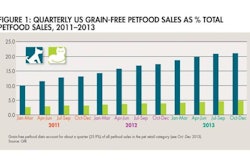General uses of trade data
Trade data provides much of the fundamental information global organizations need to effectively and efficiently complete their market intelligence efforts. There are many ways that companies take information provided by US Census and US Customs data providers and turn it into actionable, value based initiatives.
Market analysis. Companies cost-effectively develop market evaluations and explore new market opportunities by examining both detailed and aggregate information. Great insights about the impacts of future scenarios lead to more accurate forecasting and strategic planning. Market share analysis can be performed by examining the total imports for specific companies using US Customs data and comparing it to the totals for products in US Census data.
Competitive intelligence. Organizations use US Customs data to expand and protect their revenue bases by anticipating and reacting to competitive tactics and strategies. They can gain insights into competitors' supply strategies, preempt new initiatives and uncover potential opportunities and threats. US Census data can be applied if it is known that a company is the sole importer/exporter of a product from or to a specific country to determine the costs/prices of its imports/exports.
Supplier sourcing. Manufacturers reduce supply chain development costs by finding what countries export their products and qualify sources by using a combination of US Customs and US Census data. They leverage their contract negotiating position by verifying their standing with suppliers by using US Customs data.
Lead prospecting. Companies that sell products and services to the international trade community reduce sales expenses and drive revenue by developing new leads and gaining insights into existing prospects with the uniquely detailed, targeted US Customs dataset.
Legal and brand protection. Brand holders can save millions in lost revenue due to brand infringement, gray market trade and counterfeit imports by proactively protecting their supply chains and routinely monitoring their products' imports. In essence, they can use the counterfeiters' own import data against them by utilizing US Customs data. In addition, they can ensure companies and other countries are complying with product classification requirements and antidumping statutes.
Information provided by Zepol Corp .

















